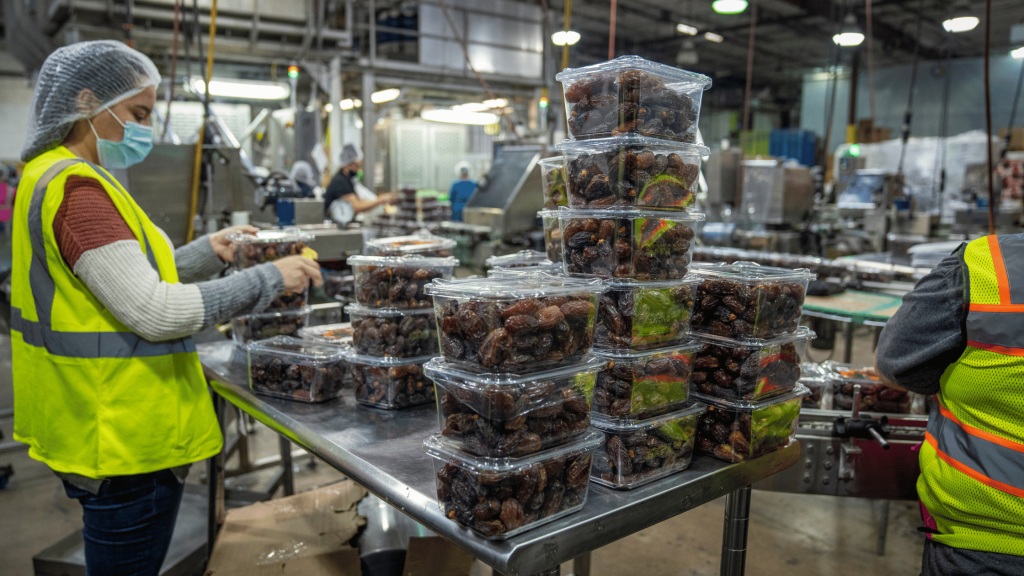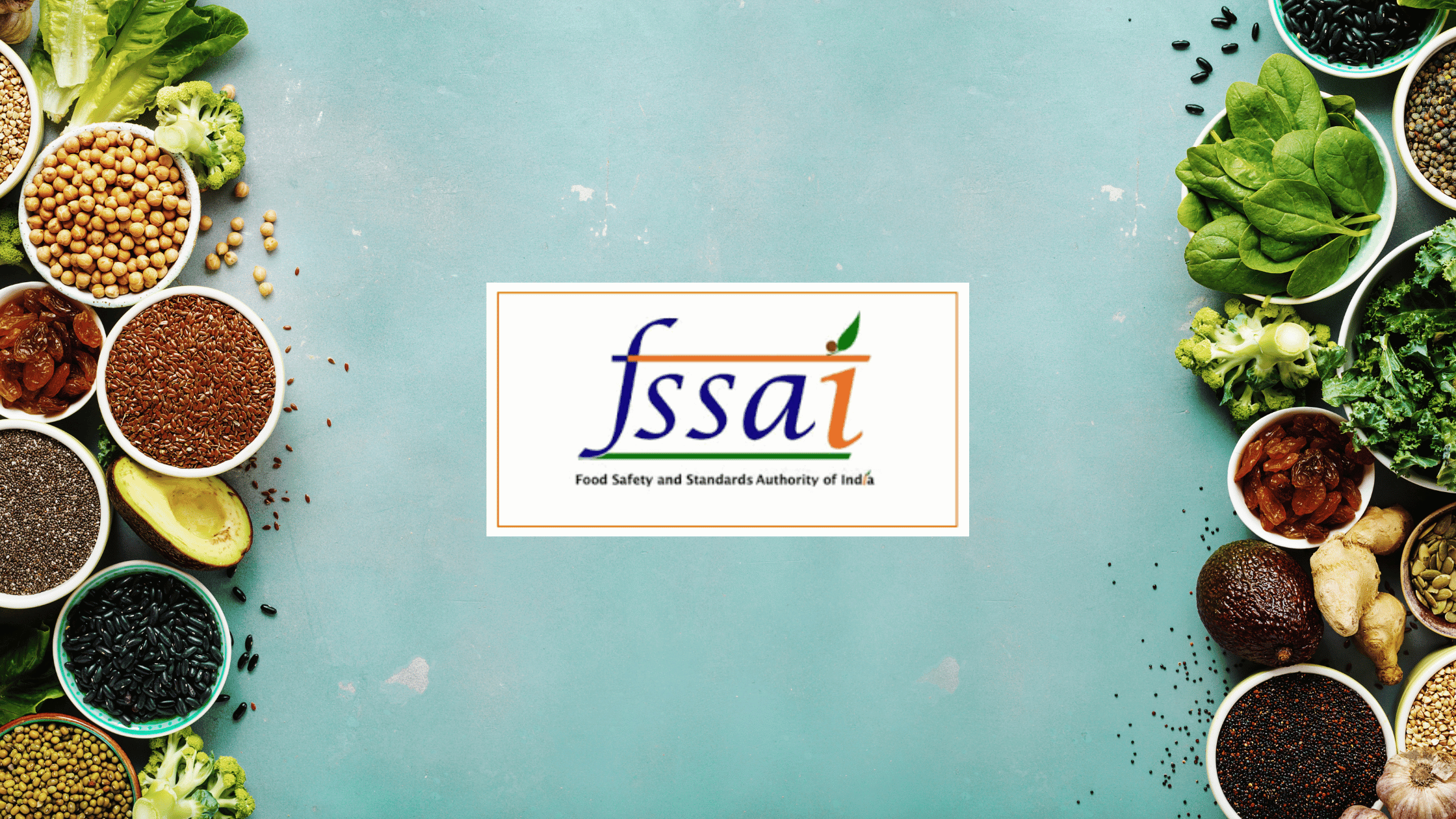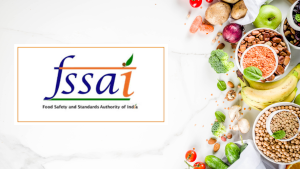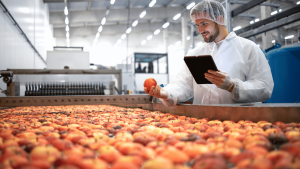
Food License Registration In Bangalore
Understanding the FSSAI and Its Significance
The Food Safety and Standards Authority of India (FSSAI) plays a critical role in safeguarding public health and ensuring the safety of food products. Established under the Food Safety and Standards Act, 2006, FSSAI is responsible for setting standards for food products and regulating their manufacture, storage, distribution, sale, and import. The authority’s primary objective is to ensure that food products consumed across the nation are safe and meet specified quality standards. This is particularly crucial in a diverse and rapidly growing city like Bangalore, where the food industry is a significant part of the economy.
Why is Food License Registration in Bangalore Essential?
For any business operating in the food sector in Bangalore, obtaining a Food License Registration in Bangalore is a mandatory requirement. This includes not only restaurants and food manufacturers but also small-scale vendors, traders, and anyone involved in the handling of food products. The license serves as a mark of quality and safety assurance, ensuring that the food business complies with the stringent standards set by FSSAI. In a city known for its vibrant food culture and stringent health standards, having a food license is integral to building consumer trust and credibility.
Ensuring Compliance and Consumer Safety
The process of obtaining a Food License Registration in Bangalore involves a thorough evaluation of various factors like hygiene, safety procedures, and adherence to food safety norms. This ensures that businesses not only abide by the legal requirements but also contribute to the overall health and safety of consumers. In Bangalore, known for its health-conscious and discerning populace, maintaining high food safety standards is not just a regulatory requirement but also a competitive necessity.
In summary, the Food License Registration in Bangalore is vital for maintaining the standard and quality of food services in the city. It represents a commitment to safety and quality, crucial for the success and sustainability of any food business in Bangalore’s dynamic market.
Understanding the Types of FSSAI Registrations for Food License Registration in Bangalore
Food license registration in Bangalore is a critical step for any business involved in the food sector. The Food Safety and Standards Authority of India (FSSAI) provides three main types of registrations or licenses based on the size and nature of the food business. Each type has specific eligibility criteria and is suitable for different types of food businesses operating in Bangalore.
Basic FSSAI License
- Eligibility: This license is ideal for small food businesses or startups with an annual turnover of less than Rs. 12 lakhs. It includes petty food manufacturers, small-sized manufacturers, storage units, transporters, retailers, marketers, and distributors.
- Suitability: This license is best suited for local food businesses in Bangalore like small eateries, homemade food suppliers, small-scale distributors, and retailers.
- Application Process: The Basic FSSAI License is obtained by submitting Form A to the FSSAI. The process is relatively simpler and requires fewer documents compared to State and Central licenses.
State FSSAI License
- Eligibility: Businesses with an annual turnover between Rs. 12 lakhs to Rs. 20 crores are eligible for this license. It includes medium-sized manufacturers, processors, transporters, marketers, distributors, and larger food businesses operating within the state of Karnataka.
- Suitability: This license is apt for mid-sized food businesses in Bangalore, including restaurants with multiple branches within the state, medium-scale manufacturers, and food processing units.
- Application Process: Applicants need to submit Form B to the FSSAI, along with detailed documentation including kitchen layout, list of food categories, and equipment details.
Central FSSAI License
- Eligibility: Large businesses with an annual turnover exceeding Rs. 20 crores require a Central FSSAI License. This category includes importers, exporters, large manufacturers, operators in central government agencies, and businesses operating in multiple states.
- Suitability: It is suitable for large-scale food businesses in Bangalore with a presence across multiple states or involved in import/export activities. This includes major food manufacturers, large hotel chains, and food businesses operating at airports and seaports.
- Application Process: The application for a Central FSSAI License is more comprehensive, requiring extensive documentation and adherence to stringent food safety standards.
Each of these licenses ensures that businesses adhere to the safety and quality standards set by FSSAI. The choice of license depends on the scale of operation and geographic reach of the business. It is crucial for food businesses in Bangalore to understand these classifications and apply for the appropriate Food License Registration in Bangalore to operate legally and successfully in the city’s dynamic food industry.
In addition to the type of license, businesses must stay compliant with regular inspections and quality checks conducted by the FSSAI to ensure continued adherence to food safety standards. Failure to comply with these standards can lead to legal repercussions and damage to the business’s reputation. Therefore, understanding and selecting the right type of FSSAI registration is a foundational step for any food business in Bangalore.
A Comprehensive Guide to the FSSAI Registration Process for Food License Registration in Bangalore
Obtaining a Food License Registration in Bangalore is a multi-step process that requires careful attention to detail to ensure compliance with the Food Safety and Standards Authority of India (FSSAI) regulations. Here’s a step-by-step guide to navigate this process:
Step 1: Determine the Type of FSSAI License
- The first step is to ascertain the type of FSSAI license required based on your business’s annual turnover and operational scale. Choose between Basic, State, or Central FSSAI licenses as per your business needs.
Step 2: Prepare the Required Documentation
- Gather all necessary documents, which vary based on the type of license. Commonly required documents include proof of address and ID of the business owner, kitchen layout (for restaurants), equipment details, and a food safety management plan.
Step 3: Filling and Submission of Application
- Applications for the FSSAI license can be submitted online through the FSSAI portal. Fill in the appropriate form (Form A for Basic, Form B for State/Central) with accurate details and attach the necessary documents.
Step 4: Payment of Application Fees
- Once the application form is filled out, the specified fee for the selected type of license must be paid. This can typically be done online through the FSSAI portal.
Step 5: Scrutiny of Application by the Department
- After submission, the application undergoes scrutiny by the Food and Safety Department. This step involves a review of the submitted documents and details for accuracy and completeness.
Step 6: Inspection by FSSAI Officials
- For State and Central licenses, an inspection of the premises by FSSAI officials is usually conducted to ensure compliance with food safety standards. The inspectors will assess various aspects like hygiene, safety procedures, and equipment.
Step 7: Issuance of the License
- If the application and inspection are satisfactory, the FSSAI will issue the Food License Registration in Bangalore. This includes a 14-digit registration or license number, which needs to be displayed at the business premises and on product labels.
Step 8: Compliance and Renewal
- The FSSAI license is valid for a period of 1 to 5 years, depending on the option chosen at the time of application. Regular compliance with food safety norms is mandatory, and the license must be renewed before expiry to continue operations.
Step 9: Addressing Discrepancies or Rejections
- If there are discrepancies in the application or if additional information is required, the department will notify the applicant. In case of rejection, the reasons will be specified, and the applicant can reapply after addressing the issues.
Following these steps will ensure a smooth and compliant process for Food License Registration in Bangalore. It’s important to keep abreast of any changes in FSSAI regulations and to maintain high standards of food safety and hygiene as part of ongoing compliance.
Essential Documents for Food License Registration in Bangalore
When applying for an FSSAI Food License Registration in Bangalore, it is crucial to gather all required documentation to ensure a smooth and successful registration process. The required documents vary depending on whether you are applying for a Basic, State, or Central FSSAI license.
General Documents for All FSSAI Licenses
- Identity Proof of the Applicant: Typically includes PAN Card, Aadhar Card, Driver’s License, Voter ID, or Passport.
- Address Proof: Utility bills (electricity or water bill), Rental Agreement, or Lease Documents for the business premises.
- Business Registration Document: Depending on the business entity, this could be a Certificate of Incorporation, Partnership Deed, GST Registration Certificate, or other relevant documents.
- Passport-Size Photographs: Required of the Applicant or Authorised Signatory.
- Food Safety Management System (FSMS) Plan: A detailed plan or certificate indicating the safety and quality management procedures in place.
Additional Documents for Basic FSSAI Registration
- Form A: Filled and signed by the applicant.
- Layout of the Area: A simple layout plan of the premises.
- List of Food Products: Detailed list of food categories to be handled or manufactured.
Additional Documents for State FSSAI License
- Form B: Duly completed and signed.
- Detailed Layout Plan: Includes specific details of the premises, showing production, storage, and other areas.
- Equipment and Machinery Details: A comprehensive list of machinery used, with their capacities.
- NOC from Local Authority or Municipality: If applicable.
- Source of Raw Material: Details of raw material sources, especially for meat and milk.
Additional Documents for Central FSSAI License
- Form B with additional declarations.
- IE Code (Import Export Code): Required for businesses involved in import and export.
- List of Partners or Directors: With contact details.
- Certificate of Food Safety Management System: If available.
- Annual Turnover Document: A declaration or proof of annual turnover.
It’s important to note that each license type has its unique requirements, and businesses must ensure that they provide accurate and complete documentation. Incomplete or incorrect documentation can lead to delays or rejection of the Food License Registration in Bangalore.
The Food License Registration in Bangalore is a vital step for ensuring compliance with food safety standards and is integral to the credibility and operation of any food business in the region. Proper preparation and submission of the necessary documents will facilitate a smooth registration process.
Deciphering the Fees and Charges for Food License Registration in Bangalore
The cost of obtaining an FSSAI Food License Registration in Bangalore varies depending on the type of license a business requires. Understanding the fee structure is essential for businesses to budget accordingly and ensure smooth registration.
Fees for Basic FSSAI License
- Costs: The Basic FSSAI License, suitable for small businesses with an annual turnover below Rs. 12 lakhs, typically has a lower fee. This affordability allows startups and small-scale operations to comply with food safety norms without a significant financial burden.
- Payment Frequency: The fee is usually paid annually and is one of the most cost-effective options for small food businesses.
Fees for State FSSAI License
- Costs: Mid-sized businesses with an annual turnover between Rs. 12 lakhs and Rs. 20 crores are required to obtain a State FSSAI License. The fees for a State License are higher than those for a Basic License, reflecting the broader scope and scale of these businesses.
- Variable Costs: The exact amount can vary depending on specific criteria such as the type of business, the risk category of food items handled, and the duration of the license sought.
Fees for Central FSSAI License
- Costs: Large businesses with an annual turnover exceeding Rs. 20 crores, or those operating across multiple states, need to apply for a Central FSSAI License. This is the most expensive license category, given the extensive operations and higher compliance standards required.
- Variable Costs: The fee structure for a Central License is influenced by factors like business size, product categories, and the number of operating locations.
Additional Charges
- Apart from the licensing fees, businesses might also incur additional costs, such as professional fees if they choose to hire consultants for the registration process, charges for legal documentation, and costs associated with meeting the compliance and infrastructure requirements set by FSSAI.
Understanding these costs is crucial for businesses planning for Food License Registration in Bangalore. It allows them to allocate resources efficiently and ensures they are financially prepared for the licensing process. The investment in obtaining the right FSSAI license is a step towards building a credible and trustworthy food business in the competitive Bangalore market.
Navigating Post-Registration Compliance for Food License Registration in Bangalore
After successfully obtaining a Food License Registration in Bangalore, businesses must adhere to various post-registration compliance requirements set by the Food Safety and Standards Authority of India (FSSAI). These regulations are crucial to ensure continuous adherence to food safety standards and to maintain the integrity of the food supply chain.
Annual Compliance Reporting
- Filing Annual Returns: Businesses holding an FSSAI license are mandated to file annual returns. This includes providing details about the business’s activities, any changes made during the year, and other relevant compliance information.
- Financial Audits: Depending on the business scale, periodic financial audits might be required to ensure that the financial disclosures align with the operational scale of the business.
Regular Inspections and Audits
- FSSAI Inspections: Regular inspections by FSSAI officials can be expected to ensure compliance with the prescribed food safety standards. These inspections typically focus on hygiene, food handling, storage conditions, and documentation.
- Third-Party Audits: In some cases, FSSAI mandates third-party audits of food businesses to ensure adherence to safety protocols and procedures.
Maintaining Food Safety Standards
- Training and Certification: Regular training of staff in food safety management and hygiene is critical. Some businesses may also need to have a certified Food Safety Supervisor.
- Quality Control: Continuous quality control measures, including periodic testing of raw materials and finished products, are essential to ensure food safety.
Updating License Information
- Changes in Business Details: Any changes in business size, nature, or location must be promptly updated in the FSSAI license. Failure to update these changes can result in non-compliance issues.
- Renewal of License: The FSSAI license is time-bound, and businesses must apply for renewal before the expiry of the current license to avoid penalties.
Handling Non-Compliance Issues
- Addressing Violations: In cases of non-compliance, businesses must address the issues as per the guidelines provided by FSSAI. This might involve revamping processes, re-training staff, or making infrastructural changes.
- Legal Consequences: Non-compliance can lead to legal actions, including fines or closure of the business in severe cases.
Adhering to these post-registration compliance requirements is crucial for businesses with a Food License Registration in Bangalore. It not only ensures legal compliance but also reinforces the business’s commitment to food safety, which is paramount in maintaining customer trust and business reputation in the competitive Bangalore food market.
The Strategic Advantage of Choosing A&D Consultancy for Food License Registration in Bangalore
Selecting A&D Consultancy for your Food License Registration in Bangalore offers significant benefits. Our expert team simplifies the complex FSSAI registration process, ensuring that your business complies with all food safety standards. With A&D Consultancy, you receive personalized assistance tailored to the specific needs of your business. Our comprehensive knowledge of the FSSAI regulations and meticulous attention to detail translates into a hassle-free registration experience. This partnership not only streamlines the registration process but also positions your business for success by ensuring adherence to all regulatory requirements. With A&D Consultancy, navigating the Food License Registration in Bangalore becomes a smooth and efficient journey.
Expert Knowledge:
We at A&D Consultancy possess extensive expertise in the Food License Registration in Bangalore process, ensuring you receive informed guidance every step of the way.
Tailored Solutions:
We understand that every business is unique. Our tailored solutions are designed to meet your specific needs, ensuring a smooth registration process.
Error Minimization:
Our experience in handling Food License Registration in Bangalore allows us to efficiently navigate the process, significantly reducing the chances of errors or delays in your application.
Comprehensive Support:
We don’t just stop at getting your license; we provide ongoing support to ensure your business remains compliant with FSSAI regulations.
Time-Efficiency:
With us, the time-consuming process of obtaining a food license is streamlined, allowing you to focus on other aspects of your business.
Regulatory Updates:
The food industry is dynamic, with frequently changing regulations. We keep you updated, ensuring your business always stays ahead of compliance requirements.
Increased Credibility:
Partnering with a reputable consultancy like ours enhances your business credibility, as it shows your commitment to food safety and quality.
Stress-Free Process:
We take the stress out of Food License Registration in Bangalore, handling the complexities and bureaucratic hurdles on your behalf.
Customer Trust:
A smooth registration process and compliance with food safety norms build customer trust in your business, an essential factor in the food industry.
Long-term Partnership:
Our relationship with you doesn’t end with registration; we aim to be a long-term partner in your business journey, offering advice and assistance as your business grows.
Choosing A&D Consultancy for Food License Registration in Bangalore not only streamlines the process but also adds value to your business, ensuring you are well-equipped to meet the challenges of the food industry in Bangalore.
FAQs on Food License Registration in Bangalore
For Food License Registration in Bangalore, there are three types: Basic Registration for turnovers below Rs. 12 lakhs, State License for turnovers between Rs. 12 lakhs and Rs. 20 crores, and Central License for turnovers exceeding Rs. 20 crores or for businesses operating in more than one state.
Applications are typically rejected due to incomplete or incorrect information, lack of necessary documentation, or non-compliance with FSSAI guidelines. It’s crucial to provide accurate details and complete documentation.
Yes, medical stores selling dietary foods must obtain an FSSAI license as they deal with food products that need to comply with food safety standards.
The process can vary but generally takes around 7 to 30 days, depending on the type of license and the completeness of the application.
Common documents include the applicant’s ID proof, address proof, business registration certificate, kitchen layout (for restaurants), and a list of food categories handled.
Yes, FSSAI licenses are time-bound and require renewal before expiry. The duration can be between 1 to 5 years, based on the choice at the time of application.
Yes, businesses must prominently display the FSSAI license number at their premises. It’s also required on product labels and packaging.




